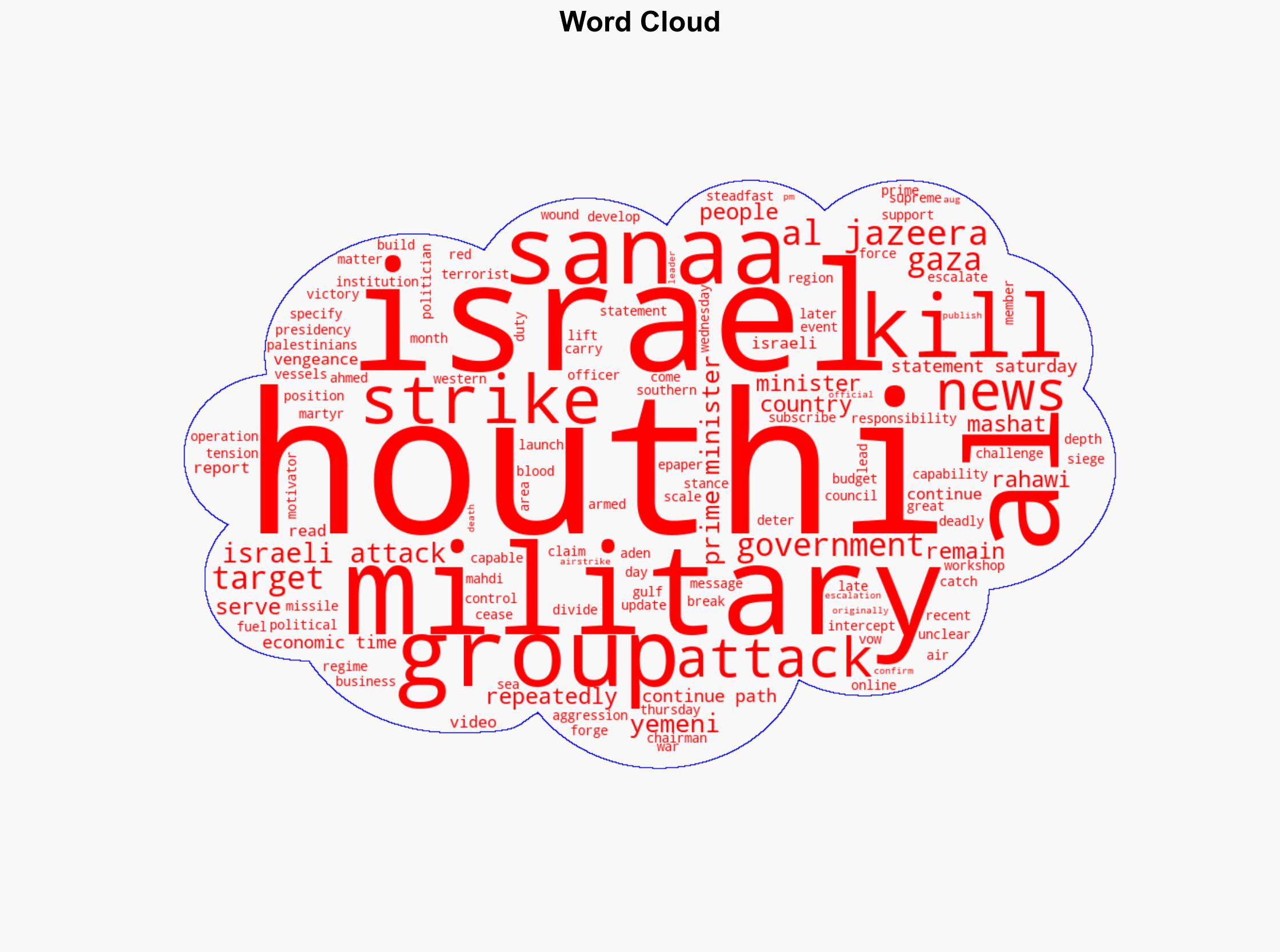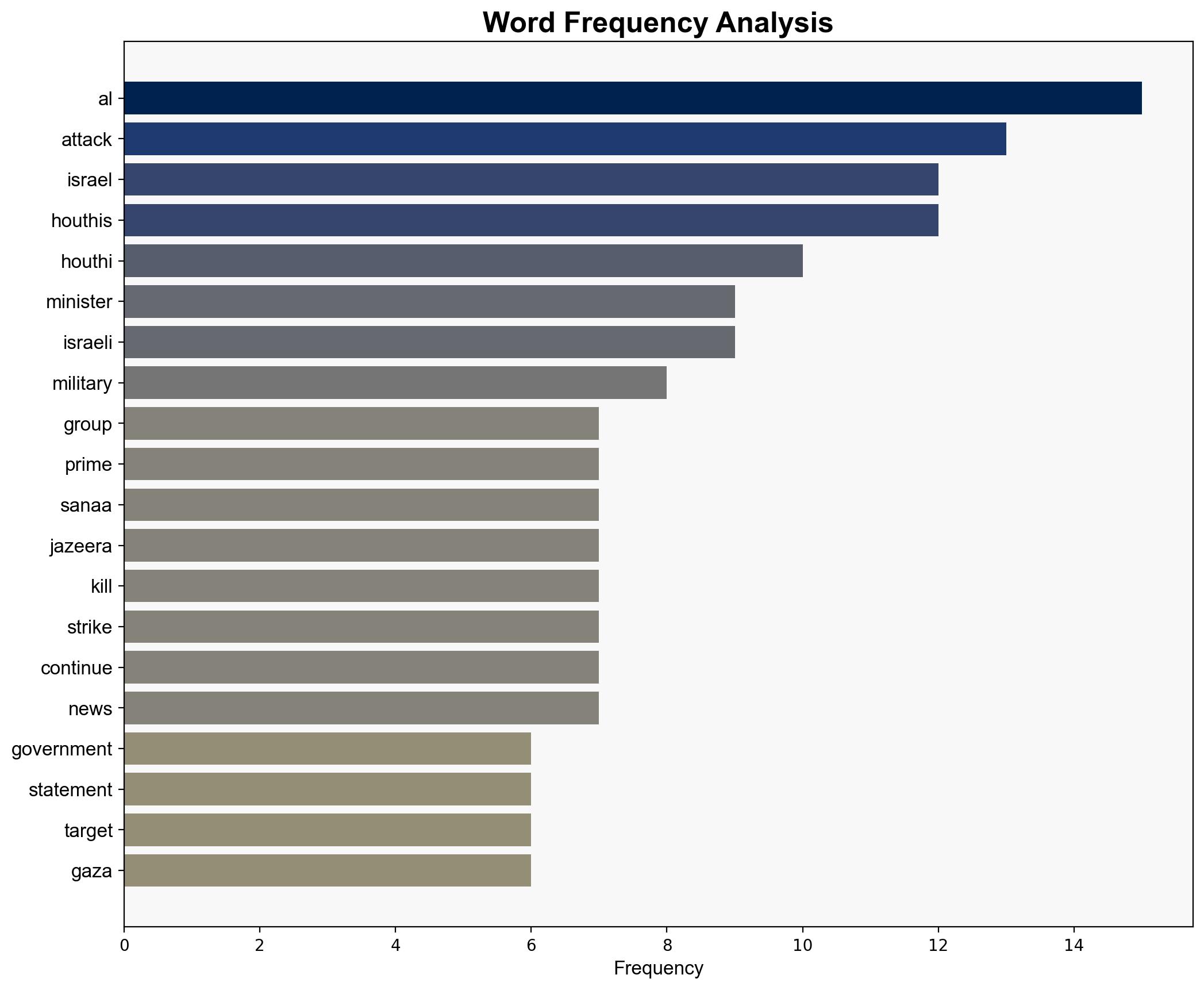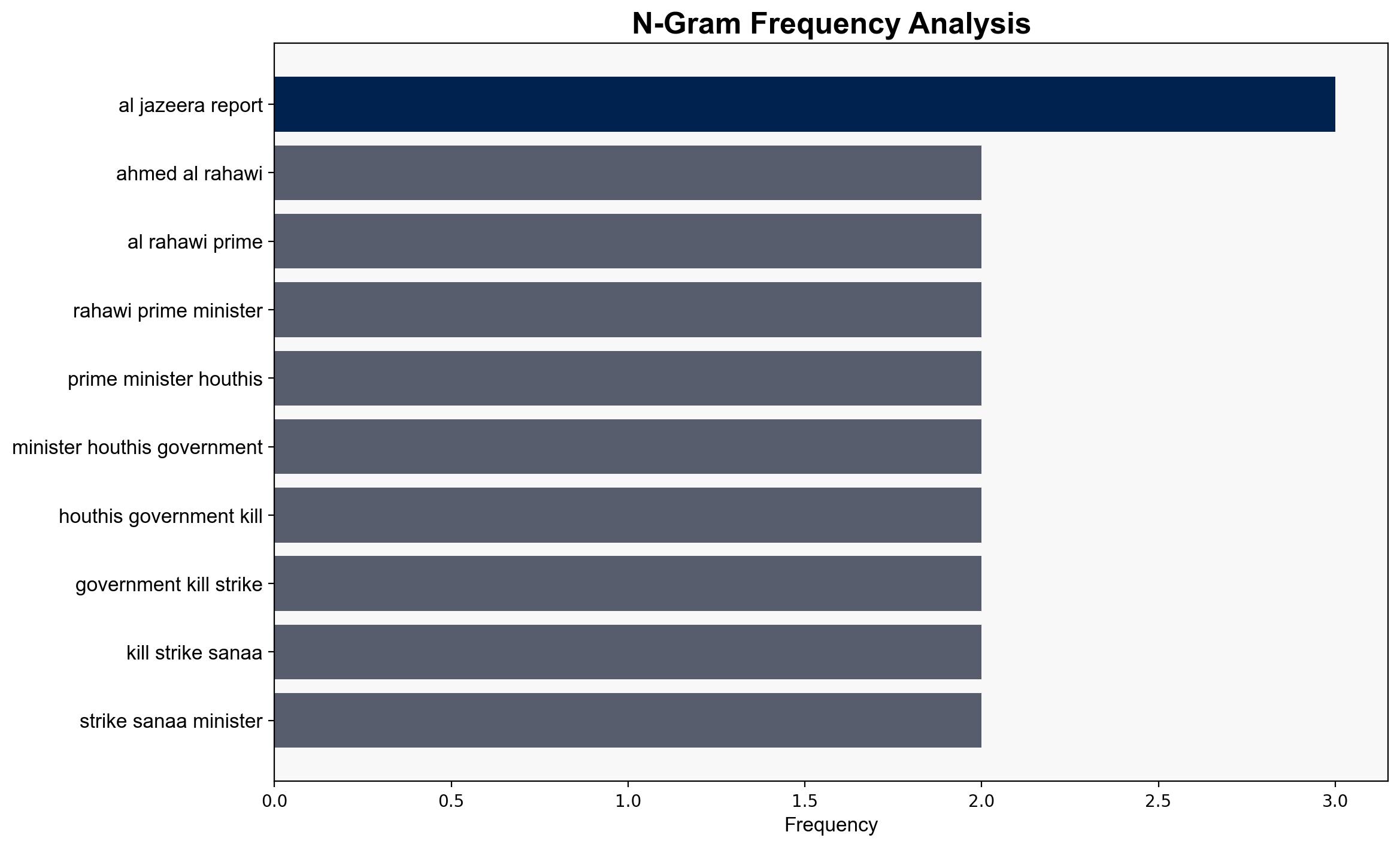Houthis vow ‘vengeance’ against Israel for killing Yemen PM – The Times of India
Published on: 2025-08-31
Intelligence Report: Houthis vow ‘vengeance’ against Israel for killing Yemen PM – The Times of India
1. BLUF (Bottom Line Up Front)
The most supported hypothesis is that the Houthis will intensify their military operations against Israel as a form of retaliation, leveraging regional tensions to gain support. Confidence level: Moderate. Recommended action: Increase monitoring of Houthi activities in the region and bolster defensive measures for potential targets.
2. Competing Hypotheses
1. **Hypothesis A**: The Houthis will escalate military actions against Israel, using the death of their Prime Minister as a rallying point to gain regional and international support.
– **Supporting Evidence**: The Houthis have vowed vengeance and have a history of retaliatory actions. Their recent missile attacks on southern Israel indicate capability and intent.
– **SAT Applied**: Cross-Impact Simulation suggests that regional tensions and existing alliances could amplify Houthi actions.
2. **Hypothesis B**: The Houthis’ threats are primarily rhetorical, aimed at consolidating internal support and deterring further Israeli actions without significant escalation.
– **Supporting Evidence**: While the Houthis have made threats, there is limited evidence of increased military capacity or external support that would enable sustained escalation.
– **SAT Applied**: Bayesian Scenario Modeling indicates a lower probability of significant escalation due to resource constraints and potential diplomatic pressures.
3. Key Assumptions and Red Flags
– **Assumptions**: Hypothesis A assumes the Houthis have sufficient resources and regional support to escalate. Hypothesis B assumes that internal consolidation is a higher priority than external aggression.
– **Red Flags**: Lack of concrete evidence of increased Houthi military capability. Potential bias in interpreting Houthi statements as purely rhetorical.
– **Inconsistent Data**: Discrepancies in reports about the scale of Houthi military capabilities and intentions.
4. Implications and Strategic Risks
– **Escalation Risks**: Increased Houthi attacks could destabilize the region further, impacting global oil supply routes through the Red Sea and Gulf of Aden.
– **Geopolitical Dimensions**: Potential for broader regional conflict involving Iran, given its support for the Houthis, which could draw in other Middle Eastern states.
– **Economic Impact**: Disruption of shipping lanes could lead to increased global oil prices and economic instability.
– **Psychological Impact**: Heightened tensions may lead to increased radicalization and recruitment within the region.
5. Recommendations and Outlook
- Enhance intelligence-sharing with regional allies to monitor Houthi movements and intentions.
- Strengthen defensive measures around critical infrastructure and shipping lanes in the Red Sea and Gulf of Aden.
- Engage in diplomatic efforts to de-escalate tensions, potentially involving intermediaries to negotiate ceasefires.
- Scenario Projections:
- Best Case: Diplomatic resolution leads to de-escalation and stabilization of the region.
- Worst Case: Full-scale regional conflict involving multiple state and non-state actors.
- Most Likely: Continued low-intensity conflict with sporadic escalations.
6. Key Individuals and Entities
– Ahmed Al Rahawi
– Mahdi Al Mashat
7. Thematic Tags
national security threats, cybersecurity, counter-terrorism, regional focus




